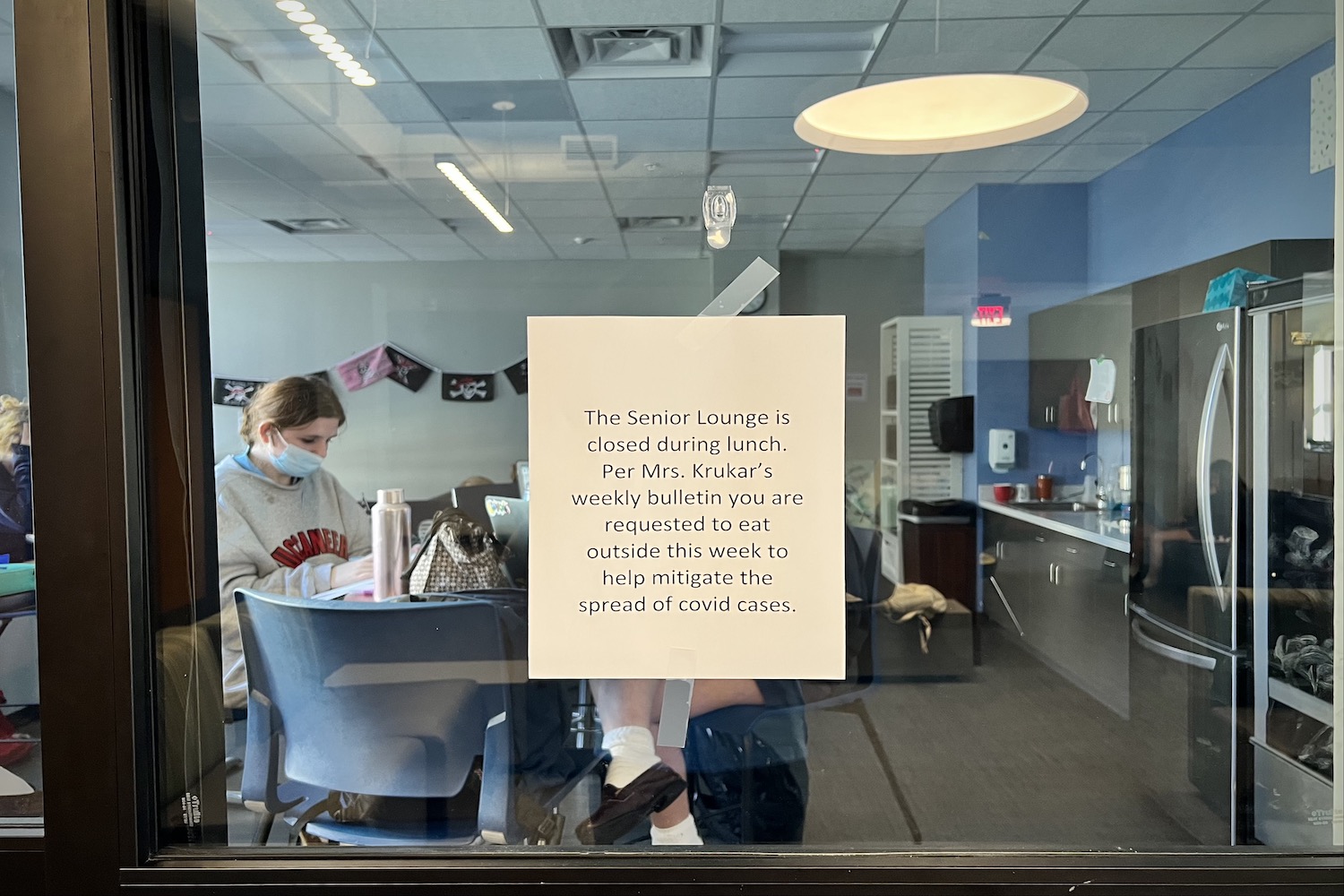Say it with me, Omicron
January 21, 2022
Ladies, gents. I think I may have lied. A year or so ago I published an article (re: T-minus 74 Days: The 2020 Presidential Election) in which I deemed society not in an “apocalyptic epoch.” Now? Well, ringing in another year with a vax and a mask, now I’m not too sure.
Say it with me, Omicron.
Pronounced “oh-mih-cron” (not “ahm-ni-cron”), the fifteenth letter of the Greek-alphabet is the WHO’s latest COVID-19 variant descriptor. And it’s incredibly transmissible. So much so that Anthony Fauci, Infectious Disease Expert and White House Chief Medical Adviser, claims the variant will infect “just about everybody.”
omicron, waiting for me to leave my house pic.twitter.com/OEH0WqkuoH
— Laura Martínez ® (@miblogestublog) January 17, 2022
And he means everybody. In an interview with Spectrum News, epidemiologist Jason Salemi confirmed that Hillsborough County has seen “30,000 [Omicron] cases [per day], more than the peak of the Delta surge, in just the past few weeks alone.”
Feeling a sense of déjà vu? You’re not alone.
“[Omicron] is forcing us to adapt yet again and learn to live with a ‘new normal.’ We have students out nearly every week due to positive results or quarantine due to exposure, but we are doing our best to keep everyone in forward motion,” says English teacher Sara Moses.
Here’s what we know.
According to a report published by the South African Medical Research Council, the Omicron variant first originated in the City of Tshwane in November 2021 with an “unprecedented” rate of transmission. Within the month, however, infections appeared to abate. Health experts expect similar transmission trajectories to be replicated across the globe.
Moreover, data suggests Omicron is not as severe a variant as Delta (though hospitalizations continue to ensue). Of course, as is often the case with the ‘rona, for every step forward, there are three steps back. Recent studies have proven previous COVID-19 inhibitors (masks, vaccines, boosters) to be more or less ineffective.
And Fauci says COVID-19 is likely to become endemic (think another flu).
Here’s what we don’t know.
Just about everything else, including how to mitigate the variant’s spread.
So, the bigger question is, what does this mean for the Great American Public? Or rather, the Academy community?
“I think we have started to learn to live with COVID,” says Moses. “It’s really hard to tell [what we’ll see in the coming weeks], but it seems like the variant is so contagious that we will continue to have increased absences and higher numbers of positive cases.”
Now, who do we trust?
I don’t know. I don’t think anyone does, really. According to a study conducted by the Pew Research Center, only 22% of US adults said “they could trust the government in Washington to do what is right.” An all-time low. Similarly, 70% of US adults agree “it’s hard to make sense of all the information about COVID-19 vaccines.”
“Personally, I try to ensure I do my research and use vetted sources. It’s not a secret that there is a lot of misinformation about all kinds of topics, especially COVID, so I try to look at a variety of sources to gather my information,” says Moses.
Even Fauci laments scientists’ inability to know “exactly how the pandemic will play out.”
The takeaway?
Omicron has left just about everybody flummoxed. Don’t, however, let others’ (or your own) confusion curb your ability to make safe and smart decisions.
Oh, and it’s pronounced “oh-mih-cron.”

